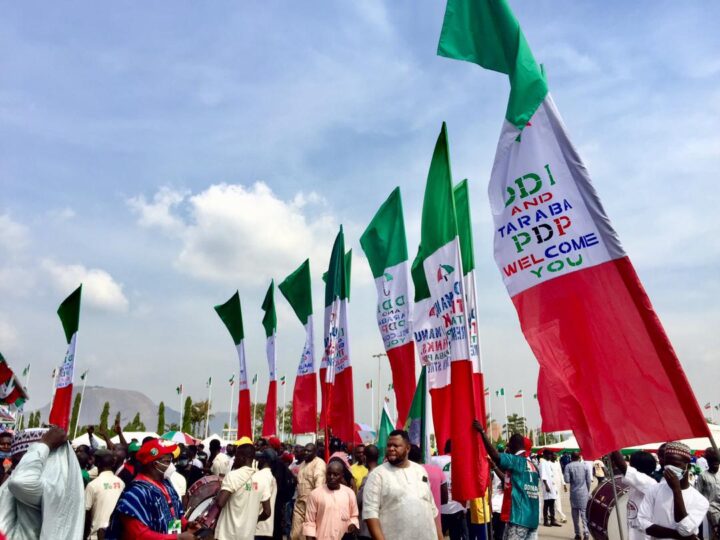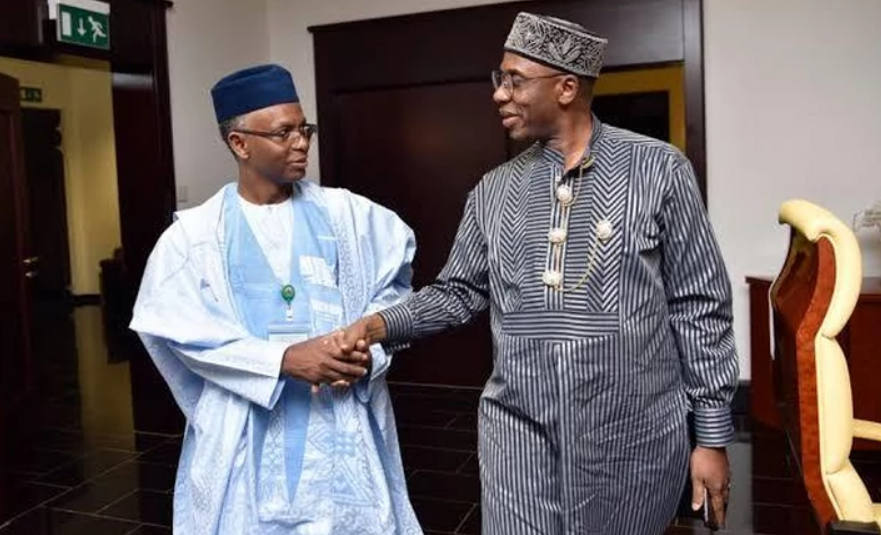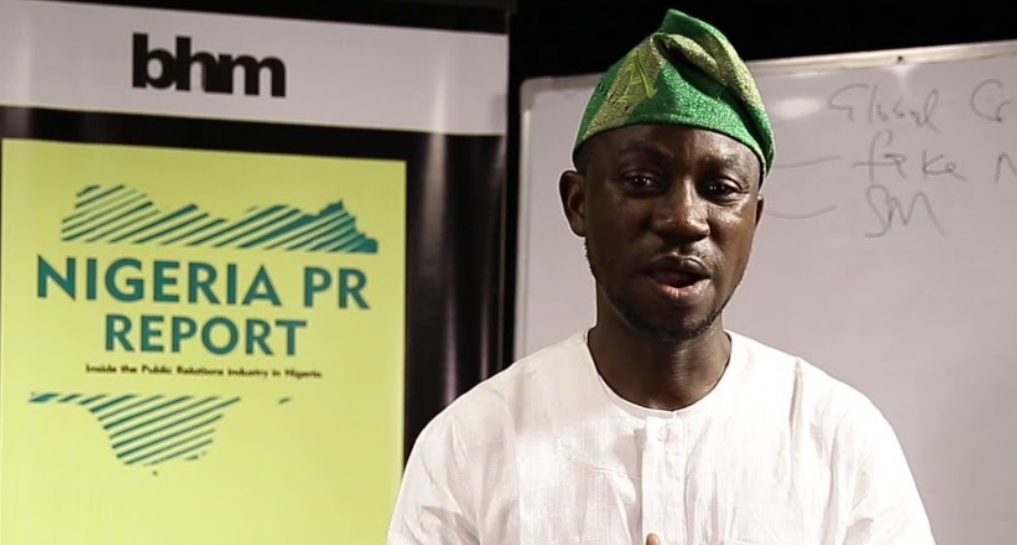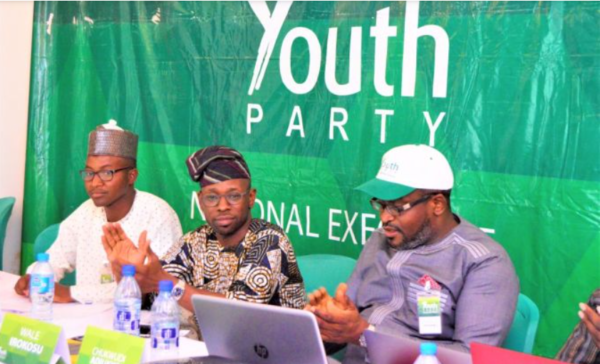BY OBOTU OTSE
Among the major determinants of who gets the ticket of a political party, electability, competence, financial standing, integrity and loyalty, rank very high. Though not exhaustive, to the party faithful, the factor of loyalty is considered as paramount. There are many reasons for this: first, it is loyalty that determines fidelity with the party manifesto. Yes. Manifesto, not ideology. In developed democracies, ideology, more than any other set of factors, could be the overriding determinant, though that has been whittled down in recent years.
If loyalty is considered an important factor, the question on the lips of many is: will the Peoples’ Democratic Party (PDP) reward disloyalty? This question becomes important considering that, outside Rivers state governor Barrister Nyesom Wike, former senate president Anyim Pius Anyim and Bauchi state governor, Senator Bala Abdulkadir Mohammed, a cursory look at the PDP presidential field will reveal that a good number of the other frontrunners had, at various times, dumped the party for other parties. Notable on this list are former Vice President Alhaji Atiku Abubakar, former Senate President Senator Dr. Bola Saraki and incumbent governor of Sokoto state, Alhaji Aminu Tambuwal.
Before considering the subject matter, let us clarify the issue of loyalty. According to the Merriam-Webster Dictionary, loyalty is “the quality or state or an instance of being loyal”. Expatiating further, it lists synonyms of loyalty as “adherence, allegiance, attachment, commitment, constancy, dedication, devotedness, devotion, faith, faithfulness, …fidelity, steadfastness…”
Advertisement
“Loyalty”, the dictionary continues, “implies a faithfulness that is steadfast in the face of any temptation to renounce, desert, or betray” while “devotion stresses zeal in service amounting to self-dedication”.
If the circumstances of the PDP, since the party lost the 2015 presidential elections, to choose the party’s flagbearer for the 2023 presidential elections, the delegates at the primaries should be wise enough to place a huge premium on party loyalty. How faithful has each of the candidates been to the party? Who, among the candidates, has stood by the party as its finances dwindled in the face of the loss of many states, particularly in the aftermath of the 2015 elections?
Party delegates would be wise to look back at that fateful day, in 2013, when five serving PDP governors and a horde of other party leaders, walked out on President Jonathan and away from the party, and joined hands with other opposition members to form the All-Progressive Congress (APC) that eventually dislodged the PDP from power.
Advertisement
Rabiu Kwankwaso (Kano), Aliyu Wamakko (Sokoto), Abdulfatah Ahmed (Kwara), Murtala Nyako (Adamawa) and Rotimi Amaechi (Rivers), all PDP governors at the time, joined Atiku Abubakar, Bola Saraki and a host of others to dump the PDP, forming a breakaway association, the nPDP. Particularly instructive was that they did not just walk out on the PDP; they did so at the highest meeting of the party: the national convention, with President Jonathan and other top level government officials in attendance. Once they left, to team up with the ACM, ANPP, CPC and APGA, to form the APC, it spelled the death knell of the Jonathan presidency and the end, at least, momentarily, of the PDP’s grip on power. What followed was like a domino effect: apart from the presidency, the PDP also lost many state governments as well as legislative seats.
Given the winner-takes-all nature of Nigerian politics, obviously, the PDP faithful would have gone through a very harrowing experience in the seven years that it has been out of power, since 2015. In fact, many a PDP chieftain had decried how, since 2015, many of the acclaimed leaders of the party simply disappeared into thin air, only to reappear now that the primaries are imminent. Without patronage such as board appointments, contracts and other perks that are structural components of democratic government, party men and women were left at the mercy of those compassionate and steadfast all-season leaders rather than those who sauntered into the scene every four years.
This raises a number of pertinent questions: first, to the extent that some of these aspirants indeed caused the party’s loss of power and the subsequent sequestration of the PDP party faithful, would it be morally right to reward any of them with the party’s ticket? Second, if the loyal party chiefs who stayed back, despite threats, persecution and outright humiliation had also abandoned the PDP, would there have been a platform to now ride on? Third, if the loyal party members had not sacrificed time, money and other resources, to sustain the party structures all over the country, would the party have remained a viable national platform for mounting a challenge to the APC, in the countdown to the 2023 elections. Fourth, what lessons would the younger PDP faithful learn, if the party is seen to be rewarding what was, to all intents and purposes, despicable selfish behaviour and outright disloyalty?
I watched the Rivers state governor, Nyesom Wike’s rebuke of the returnees, during a consultative meeting at the Benue State Government House, Makurdi, on Sunday, March 28, and was told that, it captured the feelings of many of the PDP faithful. Without mentioning the names of the aspirants, Wike had said: “Let these people who are interested in (the) presidency in the PDP tell us their contributions. You claimed to be one of the founding fathers of the party, but you left and came back; you have become an ordinary person in the new party”.
Advertisement
Continuing, he said: “If you form a company and run away because the company is not doing well, then you come back and you found that it is now doing well, will you want to come and take it over?”
According to a top party insider, Wike’s statement, though may be considered harsh, reflects the feeling of many party chieftains who wouldn’t be so blunt. But they definitely feel that those who jumped ship at the moment of distress cannot be entrusted with leading the party that they threw into distress by what is considered as their anti-party conduct.
If the truth must be told, it goes without saying that the unceremonious exit of Saraki, Atiku and Tambuwal, with other party stalwarts contributed, in no small measure, in robbing the PDP of internal harmony and strength, to prosecute the 2015 elections and the zeal to continue to pursue internal reforms after losing the elections. Instead, they left, ostensibly, for ‘greener’ political pastures. In fact, there is a joke that they could still abandon the party, should they not get the ticket for 2023. But that will be strange. After all, the Jonathan or incumbency obstacle no longer exists. Besides, only one person, out of over 20 aspirants, will get the ticket.
While some delegates may be swayed by immediate pecuniary benefits, feelers from some PDP stalwarts indicate that the majority would prefer to stick with candidates who, no matter the circumstances, had consistently identified with the party, whether in, or out of government.
Advertisement
In reality, if the delegates are to be truthful to the crucial loyalty index, it then means that only Anyim Pius Anyim, Bala Mohammed and possibly, Peter Obi stand a big chance of clinching the PDP presidential nomination. Perhaps, for lack of any clear knowledge of their recent interest in politics, we can add two giants of corporate Nigeria, the renowned pharmacist and boardroom guru, Mazi Sam Ohuabunwa and the eminent economist and banker, Mohammed Hayatu-Deen, the dark horses with the potential to spring surprises. Only a few days away.
Otse, a commentator on public affairs, lives in Makurdi
Advertisement
Views expressed by contributors are strictly personal and not of TheCable.
Add a comment






